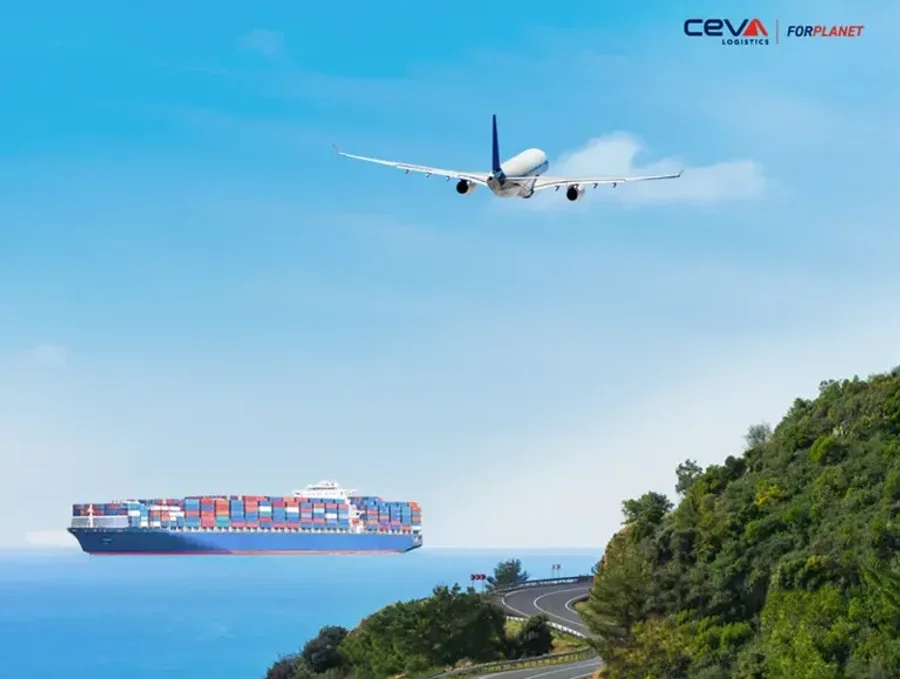Sustainability is reshaping the global logistics industry, pushing the likes of CEVA Logistics to adopt innovative green practices to secure resilience.
As the demand for environmentally conscious operations grows, integrating sustainability into logistics not only aligns with regulatory requirements and consumer expectations but also reduces waste and conserves resources.
In the logistics sector, supply chains are significant contributors to resource depletion, pollution and greenhouse gas emissions. Addressing these issues requires companies to actively monitor and mitigate their environmental impact.
Here, we take a look at CEVA Logistics’ strides towards sustainability, its achievements and the challenges ahead.
CEVA Logistics has embraced environmental responsibility, with its CEO, Mathieu Friedberg, affirming: “As a company with a strong CSR commitment, we closely monitor the part that our operations play in climate change.
“Our world is changing and we are responding. Our decarbonisation efforts are linked to our ability to innovate and collaborate.”
CEVA has taken immediate actions to reduce its carbon footprint by investing in low-emission vehicles, enhancing warehouse efficiency (84% equipped with LED lighting, 34% using low-carbon electricity) and working with carriers to develop sustainable transport solutions.
Mathieu expresses confidence in the expertise of CEVA’s team, stating: “In the end, the expertise of the CEVA team gives me confidence that we will succeed.”
Benoît Tinetti, Global CSR & Sustainability Leader at CEVA, further emphasizes the organisation’s dedication: “As a leading global logistics provider, we are responsible for decarbonizing our own assets but also play a major role in encouraging our suppliers and subcontractors to invest in the technologies of tomorrow.
“The decarbonization of the logistics industry cannot be achieved alone — it takes investment and commitment from all parties to make the biggest impact.”
Transparency is key to CEVA’s approach, as demonstrated in its CSR Executive Summary Report, where it shares progress and challenges in achieving its sustainability goals.
Measuring progress: CEVA’s ambitious goals
CEVA regularly tracks its progress through 11 Corporate Social Responsibility (CSR) Key Performance Indicators (KPIs), aligning them with its sustainability agenda. The company has set ambitious decarbonisation goals for 2025 as part of its ultimate aim to achieve net-zero emissions by 2050.
Highlighting its progress, CEVA has received a Gold Medal from EcoVadis, placing it in the top 1% of logistics companies and top 5% across all industries for sustainability performance.
Benoît highlights the achievement: “One of our biggest points of recognition this year was earning a Gold Medal and an overall score of 76 out of 100 from EcoVadis. It represents a significant 12-point improvement from 2023, highlighting our continued progress in CSR initiatives.”
EcoVadis evaluated CEVA in four categories: Environment, Labour and Human Rights, Ethics and Sustainable Procurement, with particularly strong results in the Environment category (90 out of 100).
Building a sustainable future: CEVA’s strategic pillars
CEVA’s Corporate Social Responsibility (CSR) strategy is built on three pillars, designed to support its parent company CMA CGM Group’s vision and align with the United Nations Sustainable Development Goals (SDGs).
- Acting for the Planet: CEVA is pursuing decarbonisation through low-carbon solutions, efficient warehouses and optimised fleet operations to achieve net-zero emissions by 2050.
- Acting for People: The organisation supports its communities and workforce with a global Health, Safety and Environment (HSE) strategy, while promoting education and training initiatives.
- Acting for Fair Trade: CEVA is committed to ethical practices, collaborating with partners and suppliers to create a responsible value chain. This includes anti-corruption measures, compliance with economic sanctions and promoting integrity.
CEVA’s commitment to sustainability is further exemplified by its dedicated sub-brand, CEVA FORPLANET, which focuses on circular economies and low-carbon transport solutions.

The road ahead: Challenges and opportunities
Looking to the future, CEVA acknowledges significant challenges, particularly the costs of low-carbon fuels required to achieve decarbonisation goals.
“Regarding decarbonisation, which is a key commitment at CEVA but also for our customers, the major challenge in the coming years relates to the extra cost of low-carbon fuels, whatever the mode of transport,” Benoît explains.
“It is reasonable to think that logistics will cost more in the coming years due to this common objective to reduce carbon emissions.”
The adoption of these fuels will depend on scaling production and ensuring fair cost distribution across the industry.
CEVA’s holistic approach and adaptability to evolving consumer demands position it as a trailblazer in sustainable logistics.



